I love “hot” horses… And lately I’ve been seeing a lot of suggestions for calming down a horse that is assumed to be “too hot” because it’s eating too much ___________. Usually “too much protein” in the form of alfalfa or grain or some sort of pelleted food. If someone mentions having a problem with her horse, there are always multiple suggestions along the lines of get rid of the grain/alfalfa/whatever, feed more fat, give them magnesium (despite there being no evidence that extra magnesium in the diet can exert a calming effect, people love to claim it can).
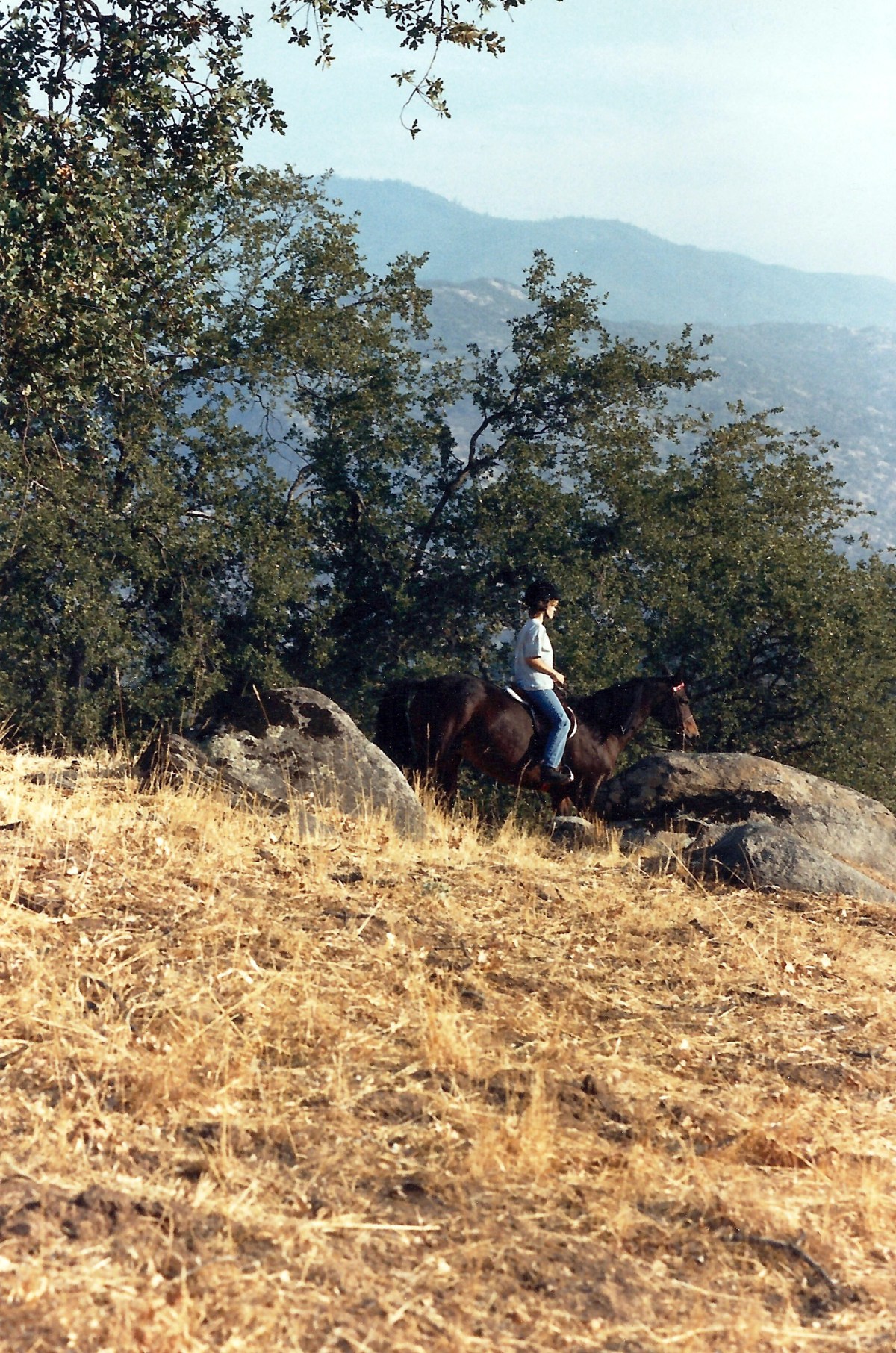
I could write a blog about how this assumption that diet causes bad behavior is a leap, but then, people persist in believing that sugar causes hyperactive behavior in children despite reams of evidence to the contrary, so it’d probably be useless to try to convince people that alfalfa isn’t making their horses hot, and that adding magnesium probably won’t make them calm down.
Diet?
This isn’t to say that diet has no effect; obviously, if a horse is not getting enough protein to support its exercise regime, it’s going to be very calm. If you prefer calm horses, and don’t want to ride one that is by nature inclined to flagging its tail and snorting when it feels good, then underfeeding slightly will probably do the trick in most circumstances.
Personally, I worry when my horses are too calm. If they aren’t fresh enough to snort on a cool morning, I’m doing something wrong. Either the work is too hard or the food is too sparse (or possibly I need a different horse). This goes for any horse, “hot” or not. One of the best signs that a horse is fit for its purpose is a bit of snortiness–or some sign of feel-good energy–on a brisk morning.
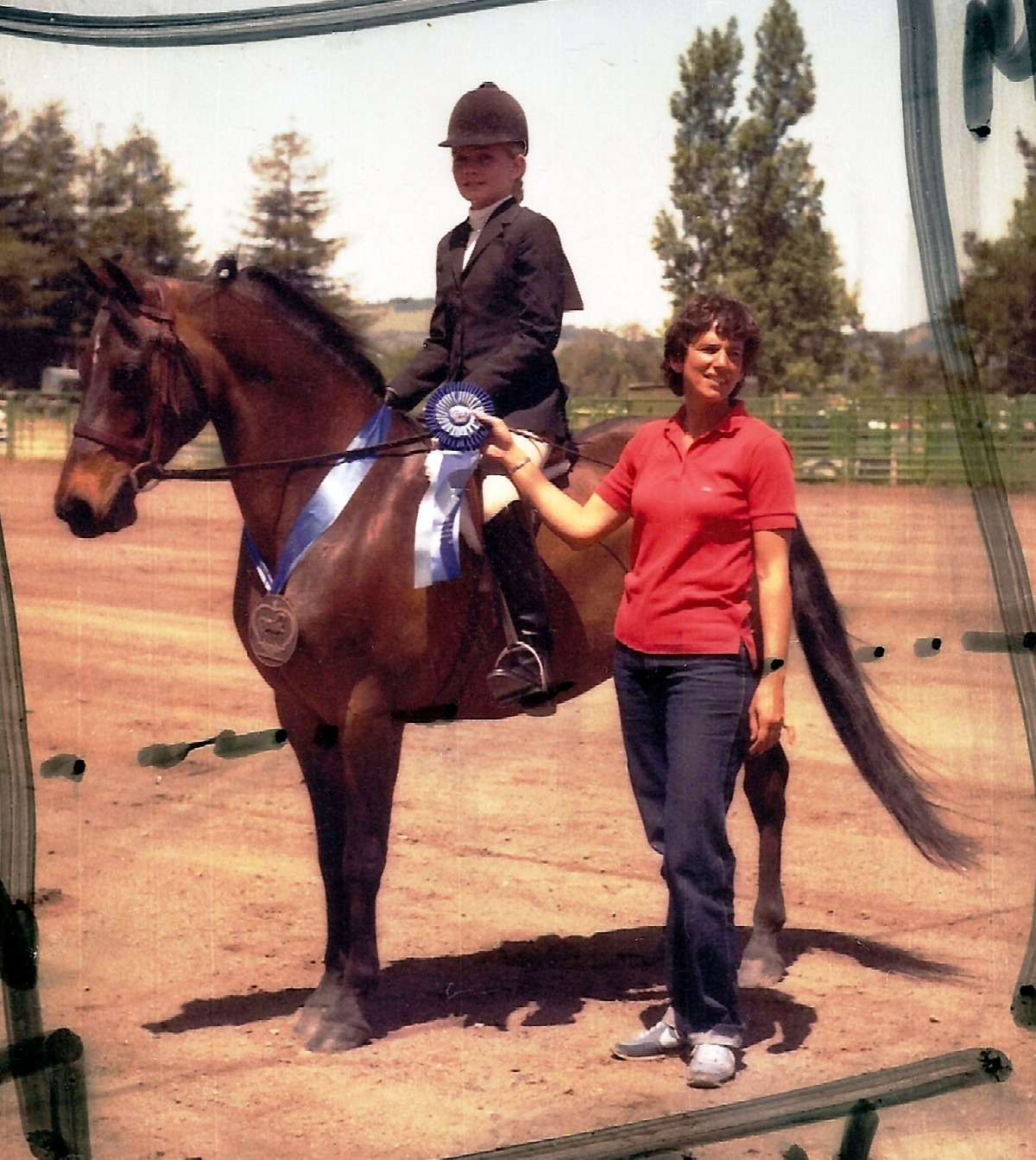
But I like really hot horses. I like them to be snorty at baseline. Maybe it’s because I was raised with Morgans, and most Morgans are hot. Maybe it’s because many of the best-behaved race horses I rode were “hot” (for Thoroughbreds; on average, Thoroughbreds are not hot. Seems to have nothing to do with speed.) Now I have an Arabian mare… Arabians are supposed to be hot. Lady’s full sister (whom I rode quite a bit) was hot, not super hot, but nice and snorty, but Lady herself is about as not hot as you can get in an Arabian, and believe me, this has made her much more difficult to train.
@021: Lady, sadly, is no longer with me, but I now have her abovementioned full sister. Meet Fantazia
What does “hot” mean anyway?
Let’s define what I mean by “hot.”
Hot doesn’t mean crazy
I do not mean crazy or uncontrollable. That’s a training issue, not a personality issue. Hot and not-hot horses can be crazy.
I do not mean spooky. There are hot horses that are also spooky, but in general, I’ve found that hot horses tend to be less spooky. Hot horses are all about forward; that gives them less time and less inclination to be stupid about silly things.
I do not mean nervous. Some hot horses are nervous. Some not-hot horses are nervous. Mostly, nervousness is an effect of exposure and training (or lack thereof). Hot horses can be very calm; in fact, they are calm inside most of the time. And sometimes, a horse that appears to be very calm on the outside is a bundle of nerves on the inside.

Hot does mean full of willing energy!
I do mean energetic (which can be trained into forward), bold, and playful. A hot horse will snort and prance and flag its tail. Hot horses make great show horses (for English pleasure and Park), because they love to show off; they “get big” (arch their neck, carry themselves up, etc) at the least excuse. Hot horses will trot and run around snorting then stop, whistle through their noses at the “danger” (or person with plastic scary stuff) a few times, and then show off some more.
Hot horses will snort softly whenever they feel good. They will prance and flag their tail when they haven’t been worked much, when there’s something exciting going on, when it’s a cool morning. Hot horses are very responsive to aides, sometimes overly so for some riders. They are often accused of being “a lot of horse.”
Benefits of hot horses
And yet, once trained, hot horses are so much safer than not-hot “lesser” horses.
Hot horses have a lot of practice at being excited. They are good at it. They know what it feels like, and they know what to do with that extra energy.
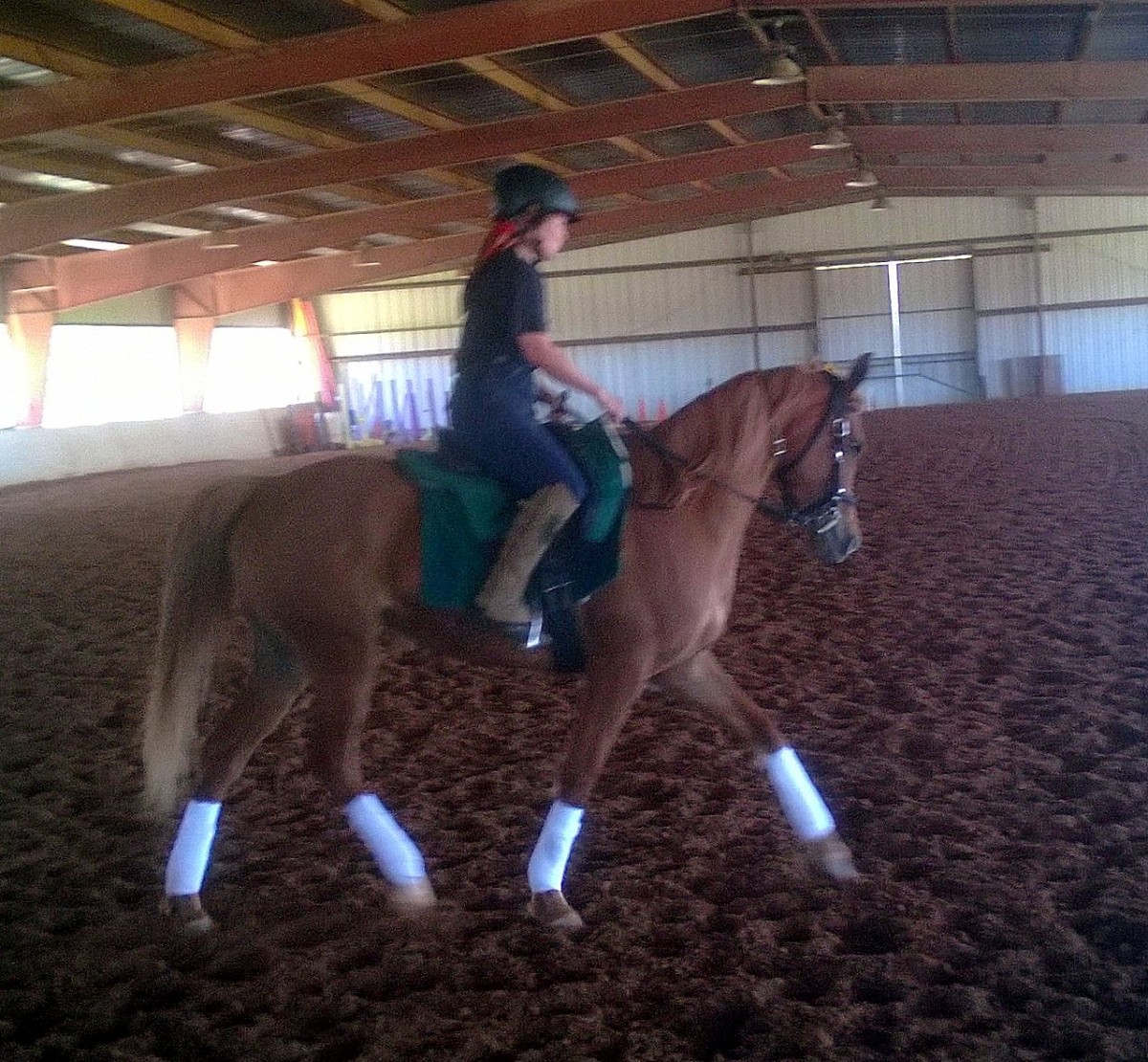
In comparison, calm, not-hot horses (like my mare Lady) can go a long time without ever having to deal with extra energy. When they are suddenly in a situation where they feel excited, they can’t handle it… They don’t know where to put it. Instead of snorting and prancing, they tremble and jig. In extreme cases, they can’t move at all until explosion. The strange-to-them tension can make them jumpy and spooky.
And the worst thing about not-hot horses (especially babies, green one) is that they go along being very quiet and calm and you (the rider) get relaxed and careless… Then BAM they do something sudden and there you are on the ground wondering what hit you. Or maybe you’re still on the horse, but a long way from where you wanted to be 😉
Hot horses are easier to train
Hot horses are easier to train to saddle. They learn quickly, and are very sensitive to cues. It’s easy to teach them their leads, because when they feel your leg, they respond in an instant (Miss not-hot Lady thinks about it for a stride or two). They think and move quickly, so everything goes faster.
Hot horses are in some ways easier to condition. Although you have to be careful not to let them do too much, they get fit faster because they use their muscles all the time. Yeah yeah I know that all horses use their muscles, but very calm ones get away with using a lot fewer of them, or just doing the bare minimum. Not a very scientific explanation, I know. But my experience has been that hot horses get fit much more quickly, and they maintain fitness longer.
But hot horses can be challenging in other ways…
On the other hand, because it can be easy to go overboard conditioning a hot horse (they will give you everything), they can be easier to break, and easier to make crazy. Most “crazy” horses–and by crazy I mean really nervous, anxious, fearful–have become that way because of being in pain. On the track, most of the hot horses I rode were very controllable, and thus not likely to pull and do too much. But they could still be overworked, just because they were willing. That’s lots of horses, though… and the advantages of a hot horse far outweigh the disadvantages.
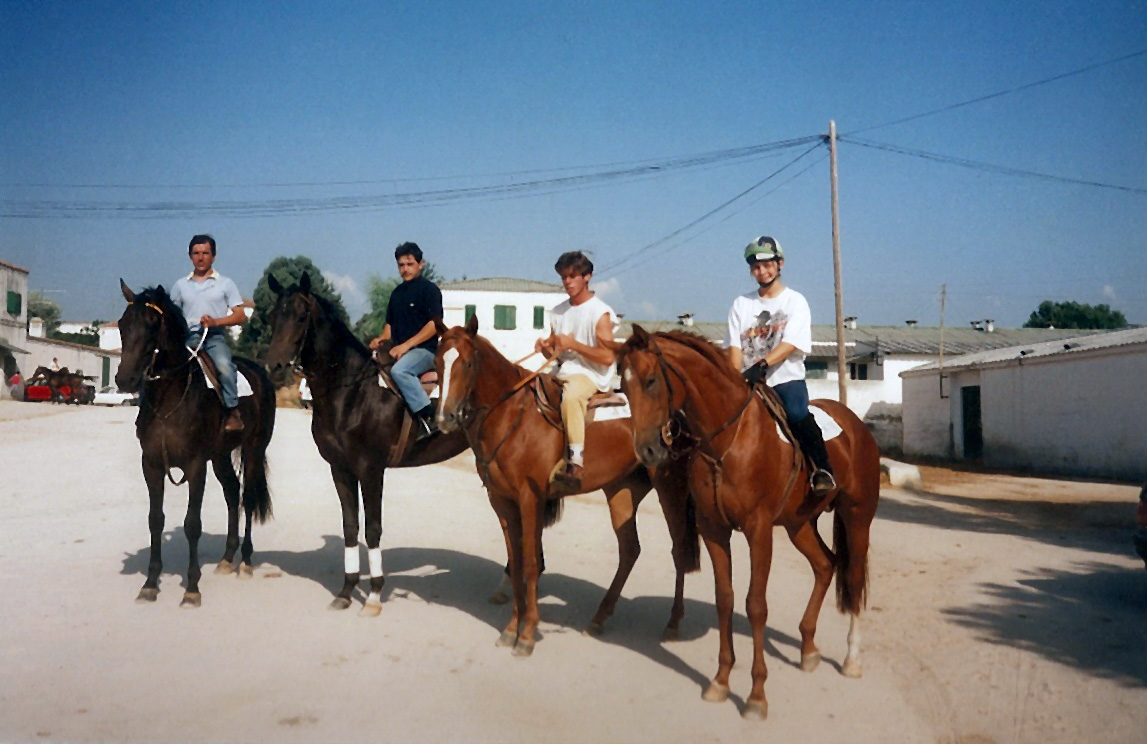
Why don’t other people love hot horses?
So why am I seeing all this negativity about hot horses? Often something like “not hot” offered as an incentive for someone to buy a horse. Or “I dunno, he’s really hot!!” as in, people probably won’t like him/be able to ride him.
I don’t know. Now.. if it were (show) quarter horse people I was talking about, I’d understand. Quarter horses need to be extremely “calm” (ie not-hot… I’d guess that many of those apparently dead QHs are very anxious on the inside at shows).
Especially endurance people…
But lately I’ve been following endurance people. They ride Arabians preferentially… they should like hot. And yet… that’s where I see all the suggestions on how to take the hot out of a horse. Where I see people talk about cutting grain and alfalfa because a horse has a lot of energy. (Don’t we want them to have a lot of energy???) And then you have the Morgan people who complain that a horse is “too hot.” Of course, there are lots of not-hot Morgans, but the chances are, with a Morgan, it’ll be on the hot side.
But maybe when they say hot, they mean untrained, or nervous rather than snorty, energetic, and full-of-itself. To me, nervous and/or spooky is not hot, that’s untrained, or too trained, or anxious. Perhaps I’ve just always misunderstood the meaning of the term. Still… when people say “(s)he’s hot!” I always take it to mean “that’s a horse I want to ride!”
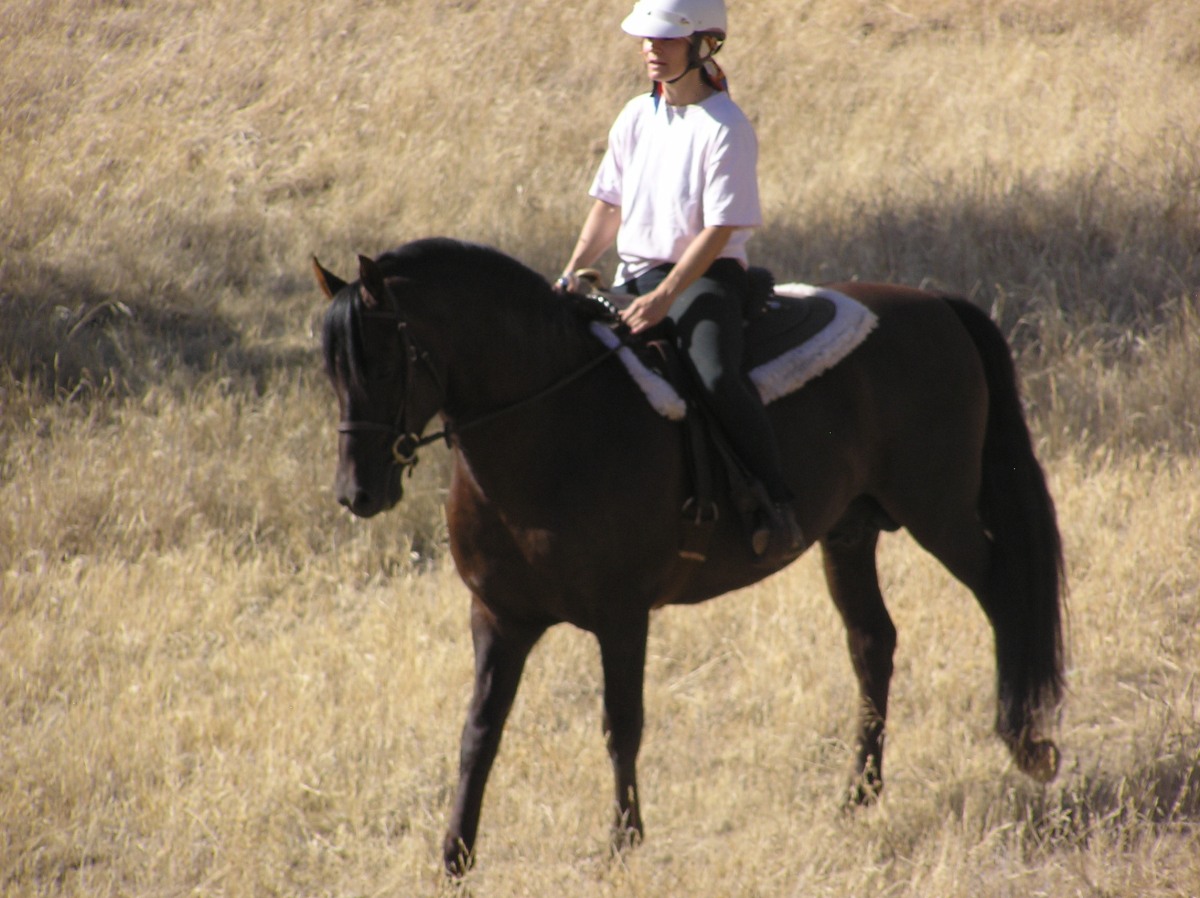
Sometimes it can be difficult to recognize a hot horse. An underfed or miserable or nervous horse may appear to be not-hot, until you’ve fattened it up and made it feel at home. Such was the case with WSG Point of Order, in the video below. First images are after a few months of feeding and petting. Earlier video in a dressage clinic was a few days after we’d got him… he seemed very calm. I knew he was feeling better when he started snorting softly whenever I rode him.

Great post and I agree 100%. I love my hot Arabians.
Hear, hear! I am from Texas and grew up riding short, stocky, callllllmmmmm QH. I always wanted a TB but didn’t get back into owning horses until I was as certain as one can be that I would be able to provide for them long-term. At 30, I bought a 3-year-old off the track. He was hot. We went everywhere. The beach. The lake. Charity trail rides. Obstacle courses. Down the road. He was tremendously athletic, young and of course needed retraining after a nice, Zen letdown period just being a horse for a change. After executing many spontaneous aerial cartwheels, I learned to love him for who he is rather than trying to change him as you mentioned (why? What was I doing? It wasn’t working anyway!). So we just kept on riding. He taught me to be braver. To ride through my own nervousness . To fall correctly. And to embrace the damn hotness! My skinny, 3YO from off the shedrow is now 10 and….still hot. But so long as he has a calm, gentle, confident rider-he’ll give you everything he’s got!
Pingback: Changes – Wild Horses
Pingback: How to wrap horse legs (and how to roll the leg wraps)
Pingback: The Road to the Tevis Cup, Post #1: Introducing Fantazia
Pingback: Saying good-bye to Beroni (Road to the Tevis Cup, Post # 45)